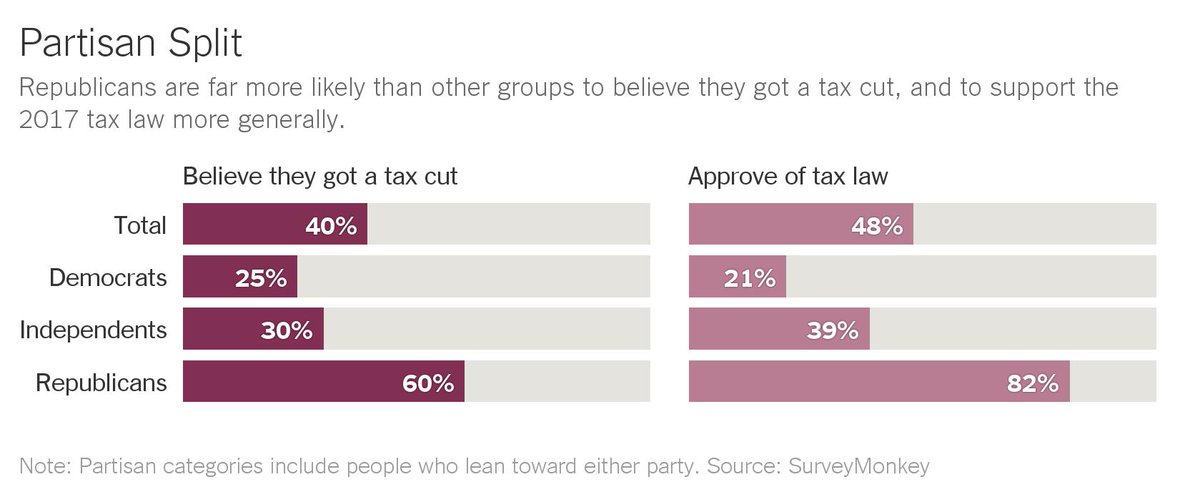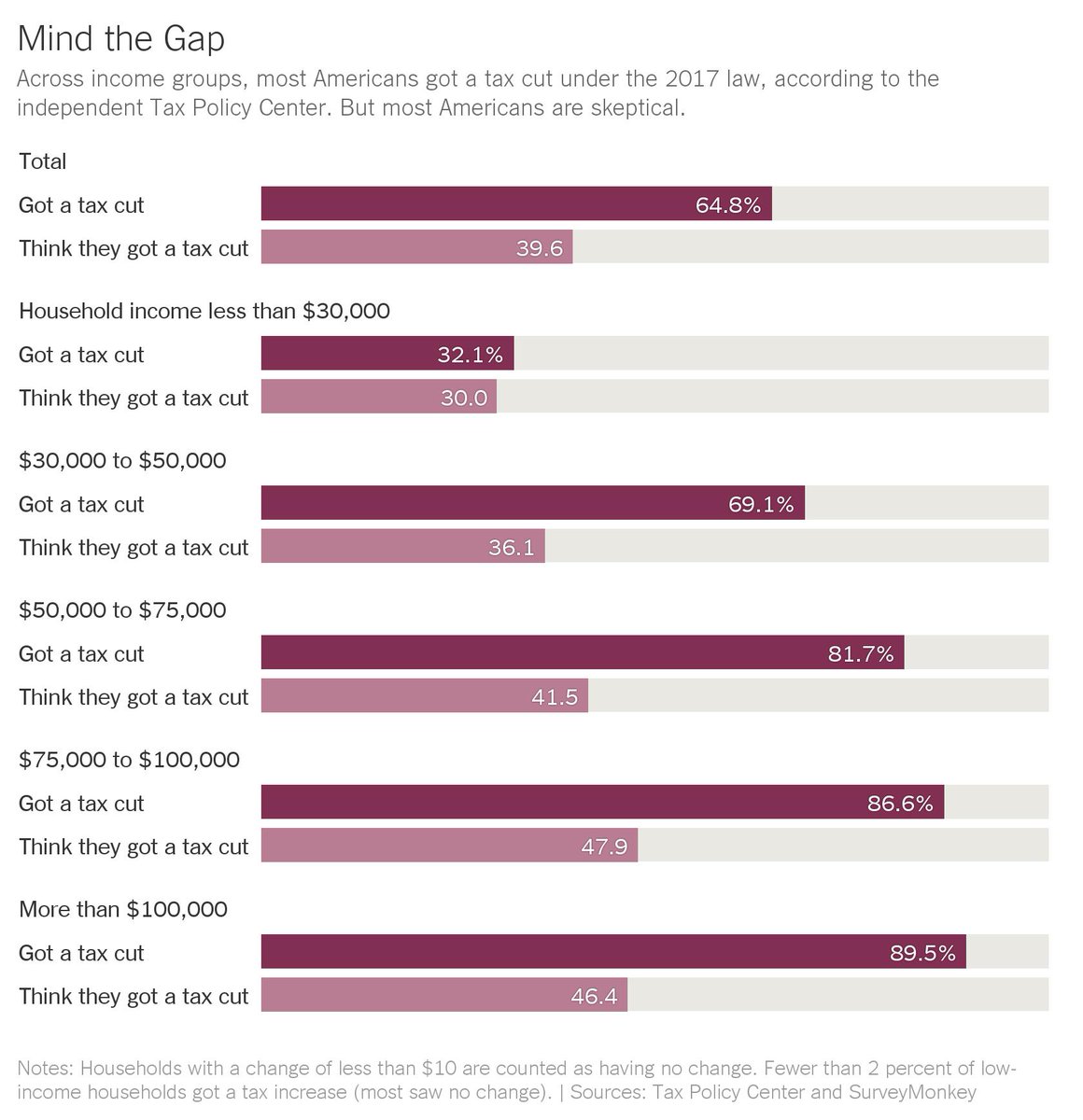nytimes.com/2019/04/14/bus…
1. You morons are wrong. I totally got a tax increase!
2. You liars in the media are the reason no one thinks they got a tax cut.
3. So what if I got a few bucks extra? The law was still terrible!
Going to take these in reverse order.
nytimes.com/interactive/20…
And also in my thread from yesterday:
tpc-tax-calculator.urban.org
Here's one from @taxfoundation: taxfoundation.org/tax-calculator/





